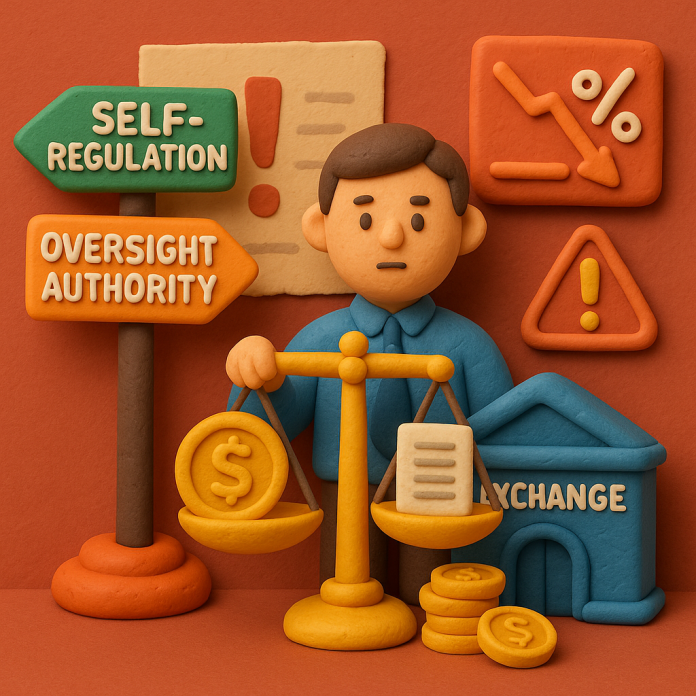
The second pillar of the Digital Asset Basic Act focuses on overhauling the governance of cryptocurrency exchanges in Korea.
One of the most controversial proposals is the removal of listing and delisting authority from exchanges.
Traditionally, individual exchanges had full discretion over which tokens to list or delist, often based on internal committees and criteria. Under the new bill, such decisions would be transferred to neutral entities: the Self-Regulatory Evaluation Committee and the Market Oversight Committee, both to be formed under a certified self-regulatory organization (SRO).
The government argues that this change will address:
-
excessive marketing-based listings,
-
inconsistent delisting procedures, and
-
the proliferation of low-quality “KIMCHI coins.”
However, exchanges are pushing back.
They argue that this move could cripple their competitiveness and flexibility, especially in a global environment where overseas exchanges operate with fewer constraints.
“If exchanges can’t manage listings efficiently, users will migrate to global platforms,” said one major exchange official.
The bill also legalizes credit provision (leverage trading) within the framework of crypto investment services.
While some exchanges already offer margin and futures products, the new legislation would formalize these practices.
This could diversify revenue models for platforms, but also introduces risk:
-
overleveraged retail investors,
-
unclear boundaries with traditional financial derivatives, and
-
pressure to implement strict internal controls.
The bill further mandates:
-
segregated custody of user funds,
-
real-time public disclosure of holdings,
-
anti-market manipulation protocols, and
-
organizational separation of trading, custody, and brokerage functions.
This signals a clear shift toward turning exchanges into regulated financial institutions, with roles and obligations comparable to those of traditional banks or securities brokers.
Final Thoughts: Between Structure and Suppression
The Digital Asset Basic Act is not merely a regulatory move — it is a political declaration to formalize Korea’s digital finance sector.
But where is the line between protection and suppression?
The success of this legislative effort will depend on:
-
how detailed and flexible the enforcement rules are,
-
whether neutral oversight bodies can operate fairly,
-
and whether market innovation is still encouraged under regulation.
This bill could become Korea’s flagship framework for digital finance — or, if handled poorly, a cautionary tale of overregulation in a rapidly evolving global industry.






